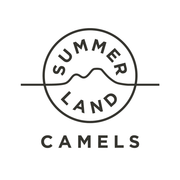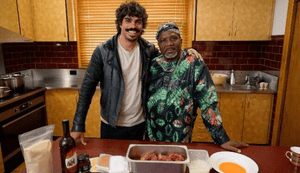Eat the Invaders: Why Camels Could Be Australia’s Next Sustainable Superfood
Australia’s wild camels often find themselves cast as villains in the ongoing environmental conversation. But is that fair? The ABC series Eat the Invaders takes a fresh look at invasive species and how they can be transformed from a perceived problem into a sustainable food source. One episode focuses on camels, challenging long-held perspectives and encouraging viewers to reconsider their place in Australia's ecosystem and culinary scene.
The Story of Camels in Australia
Camels were first brought to Australia in the 19th century to assist with transport and exploration in the harsh, arid interior. When their services were no longer needed, many were released into the wild, leading to the establishment of the largest feral camel population in the world. Today, these camels are often blamed for environmental degradation, but it’s important to remember—they did not choose to be here.
Rather than viewing them solely as a problem, the episode of Eat the Invaders explores how camels can be part of the solution. By promoting camel meat as a viable, sustainable protein source, the show challenges the notion that feral animals are nothing more than pests.
A Feast with a Message
The episode follows Tony Armstrong as he visits a remote cattle station in Western Australia to witness first-hand the impact of camels on the environment and infrastructure. He learns about their significance in Australia’s colonial history and the role Afghan cameleers played in opening trade and transport routes in arid regions. While their population now thrives, camels are often considered a threat to livestock, prompting the question—why aren’t more Australians eating camel meat?
To answer this, Tony meets people from cultures that view camels as a valuable food source. A Nigerian and a Somalian, for example, see camels as a gift, highlighting how cultural perspectives shape which animals are considered acceptable for consumption. After trying a homemade camel stew, Tony becomes convinced that camels belong on Australian menus. He even tests a camel burger with burger aficionados to gauge their reactions.
The Challenges of Expanding the Camel Meat Industry
While camel meat presents an opportunity for sustainable eating, expanding the industry isn’t without challenges. Tony consults invasive biologists Phill Cassey and Andy Lowe to understand the logistical and environmental hurdles that need to be overcome. Managing Australia’s feral camel population is not a straightforward solution, but responsible harvesting could provide a win-win for the environment and food security.
A Positive Future for Camel Meat
Back at Mona, artist Kirsha Kaechele and chef Vince Trim craft a feast that tells the camel’s story through all the senses. Tony is joined by his partner Rona Glynn-McDonald and her father, filmmaker Warwick Thornton. Together, they reflect on how food choices are deeply intertwined with the health of the environment and consider whether camels could be part of a more sustainable future.
The growing interest in camel meat is not just about pest control; it’s about recognising the value of this underutilised resource. Rather than culling camels and leaving the meat to waste, responsible harvesting for human consumption supports environmental management while providing a nutritious and ethical food source.
A Call to Action
Eat the Invaders sparks an important conversation about food, sustainability, and our relationship with nature. If more Australians embraced camel meat, we could reduce the environmental impact of feral herds while supporting local businesses that responsibly manage these animals.
For those interested in trying camel meat, whether as a gourmet experience or a sustainable protein alternative, now is the time to explore. Consider a visit to Summer Land Camels to try one of the café menu items featuring TAWCC Camel Meat. By doing so, we’re not just eating an invader—we’re making a positive impact on Australia’s environment and food industry.
Where Can I Buy Camel Meat and Camel Milk Products in Australia?
Camel Meat – TAWCC Australian Camel Meat is available for purchase from our farm at Harrisville. TAWCC Camel Meat is Halal certified.
Charcuterie Items – TAWCC Australian Camel Salami and other smallgoods are available from our farm. We also partner with TAWCC to provide Home delivery to selected postcodes in Brisbane, Gold Coast, Sunshine Coast, Toowoomba and Northern NSW.
Fresh Milk - Our award-winning Summer Land Camels Milk is a great dairy alternative and contains no beta-casein A1. It is rich in vitamins, minerals, healing immune proteins and its silky, smooth and clean texture makes it the best tasting milk for every occasion. You can buy fresh Camel Milk from our farm near Harrisville Qld or from a range of stockists in Southeast Queensland. For bulk orders, please place an order with us prior to your visit. Home delivery is also available to selected postcodes in Brisbane, Gold Coast, Sunshine Coast, Toowoomba and Northern NSW.
Powdered Milk – Our fresh Camel Milk is freeze dried to lock in the pure goodness. Add some Summer Land Camel Power to your day! A perfect addition to milkshakes, smoothies, or for adding to cooking. Available in 100g and 200g sealed packs.
- Pure Australian Camel Milk
- 100% Natural
- No additives or preservatives
- Rich source of vitamins and minerals
- Halal Certified
Available from our farm or shop online.


 Watch Now
Watch Now

